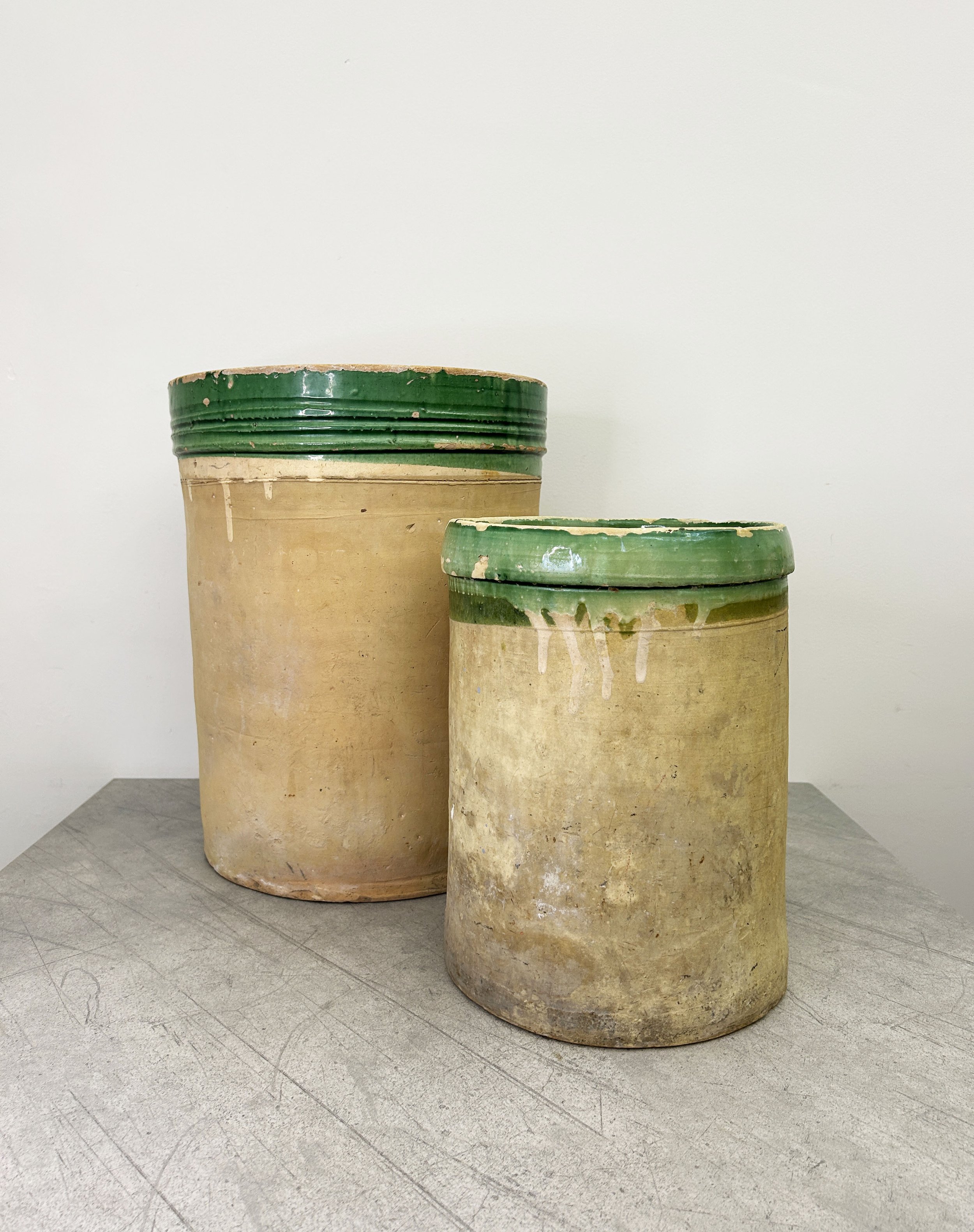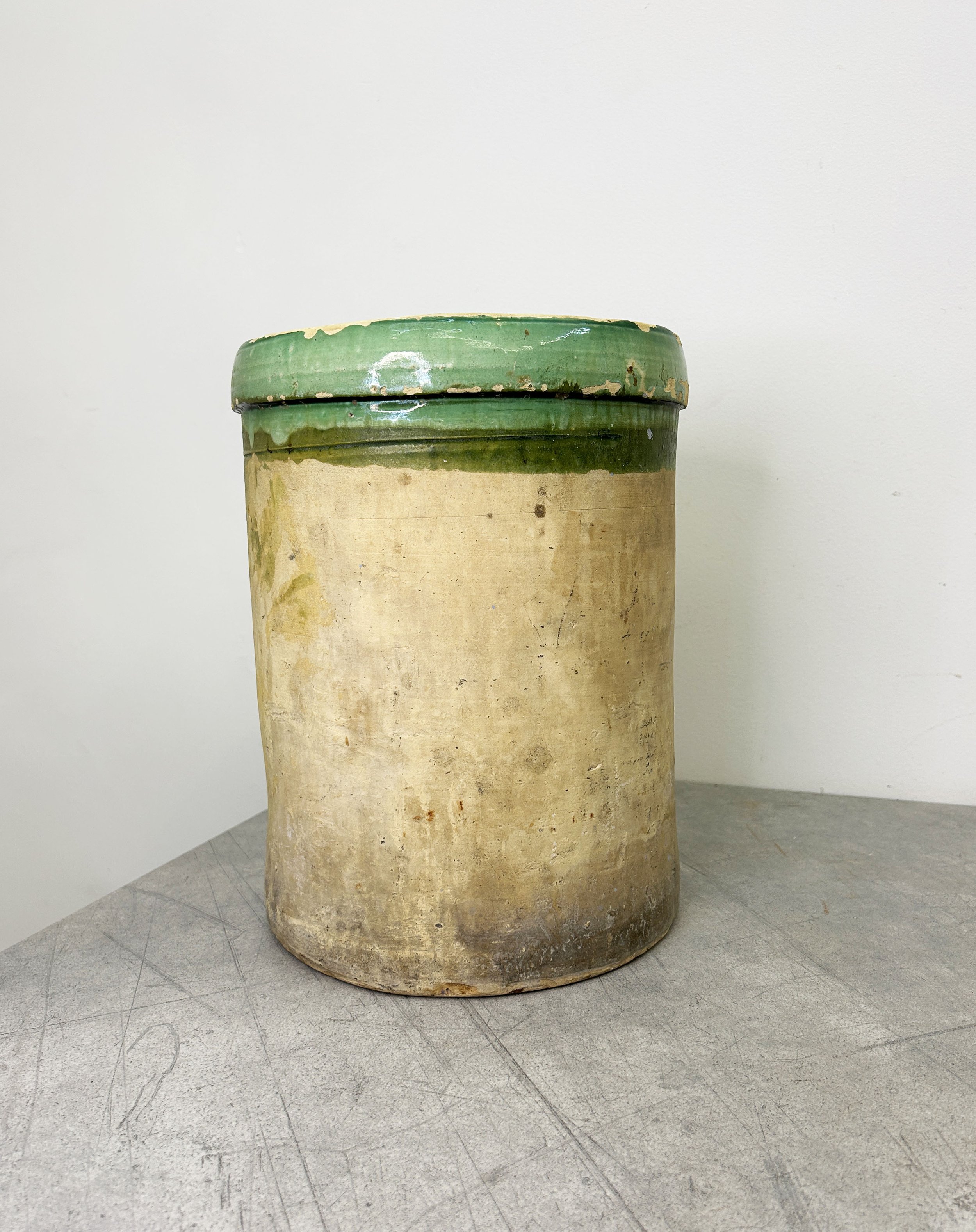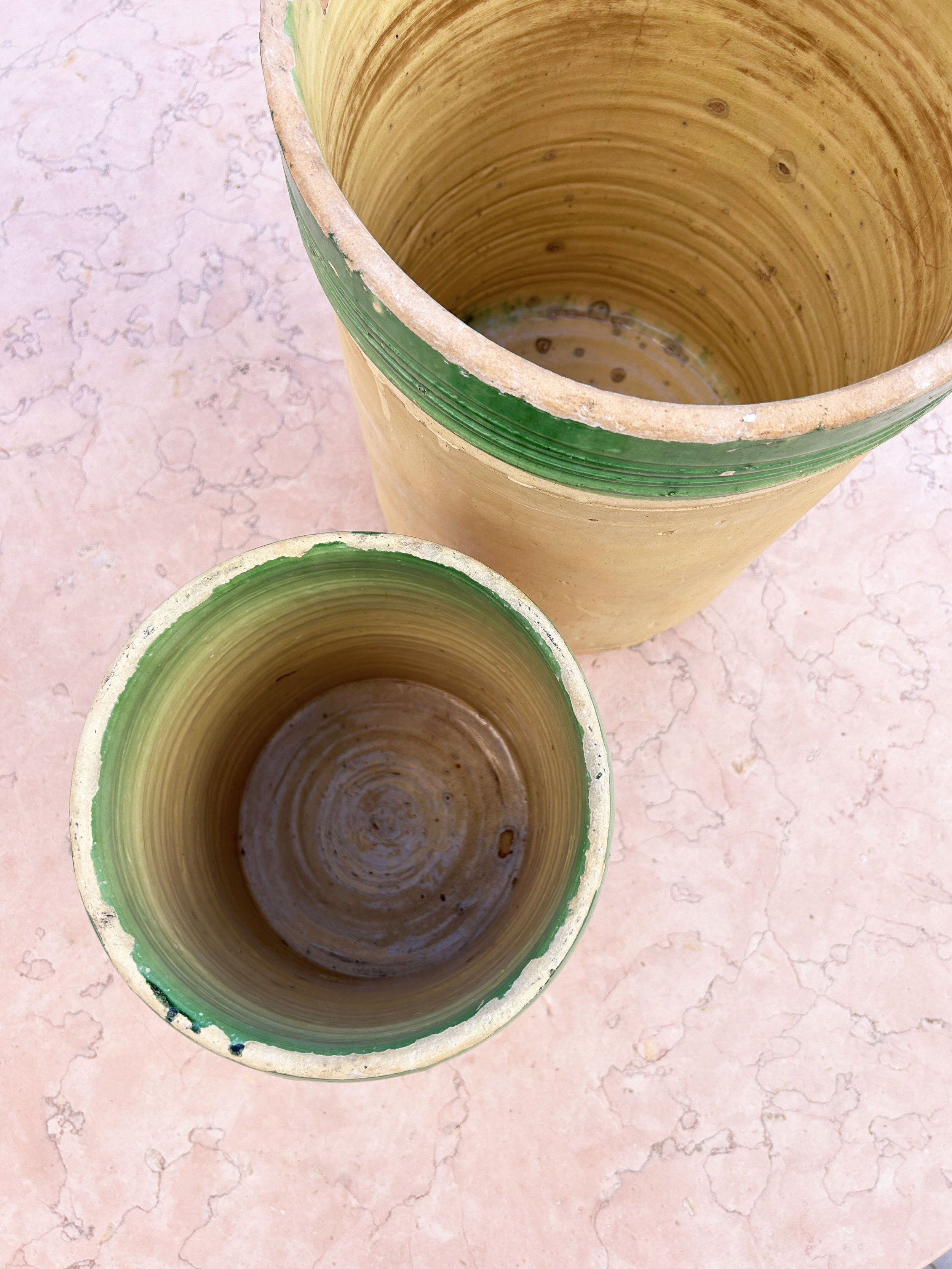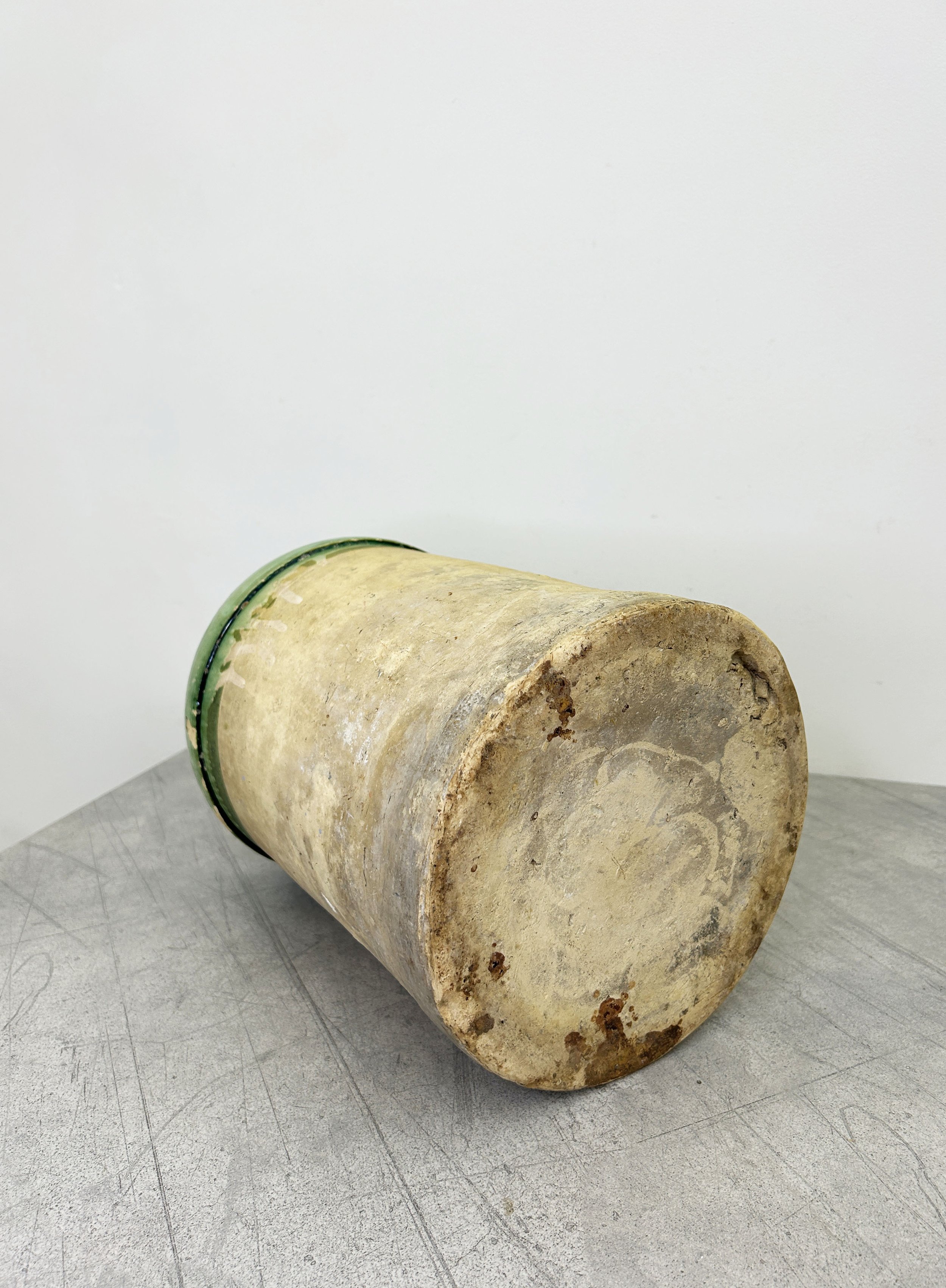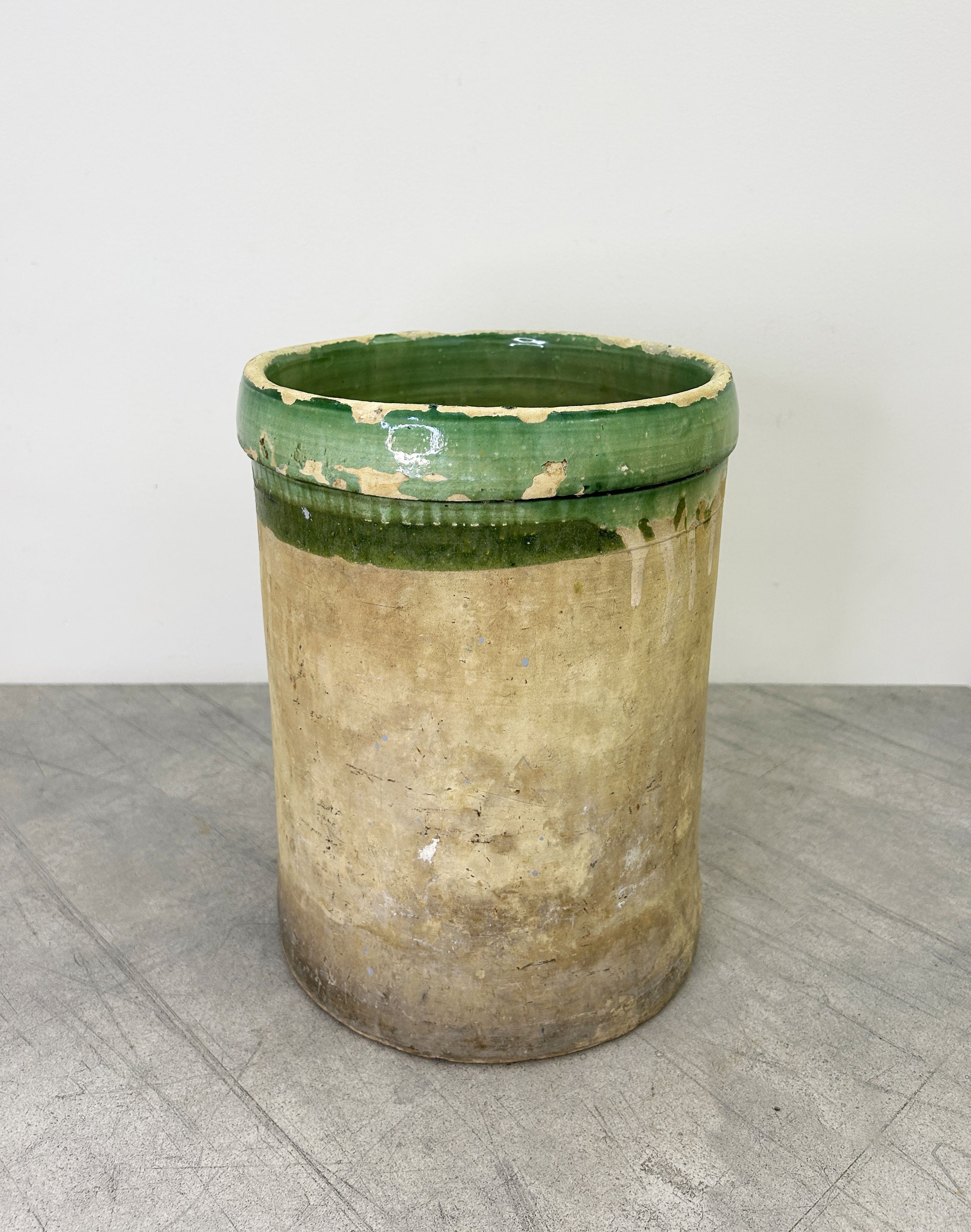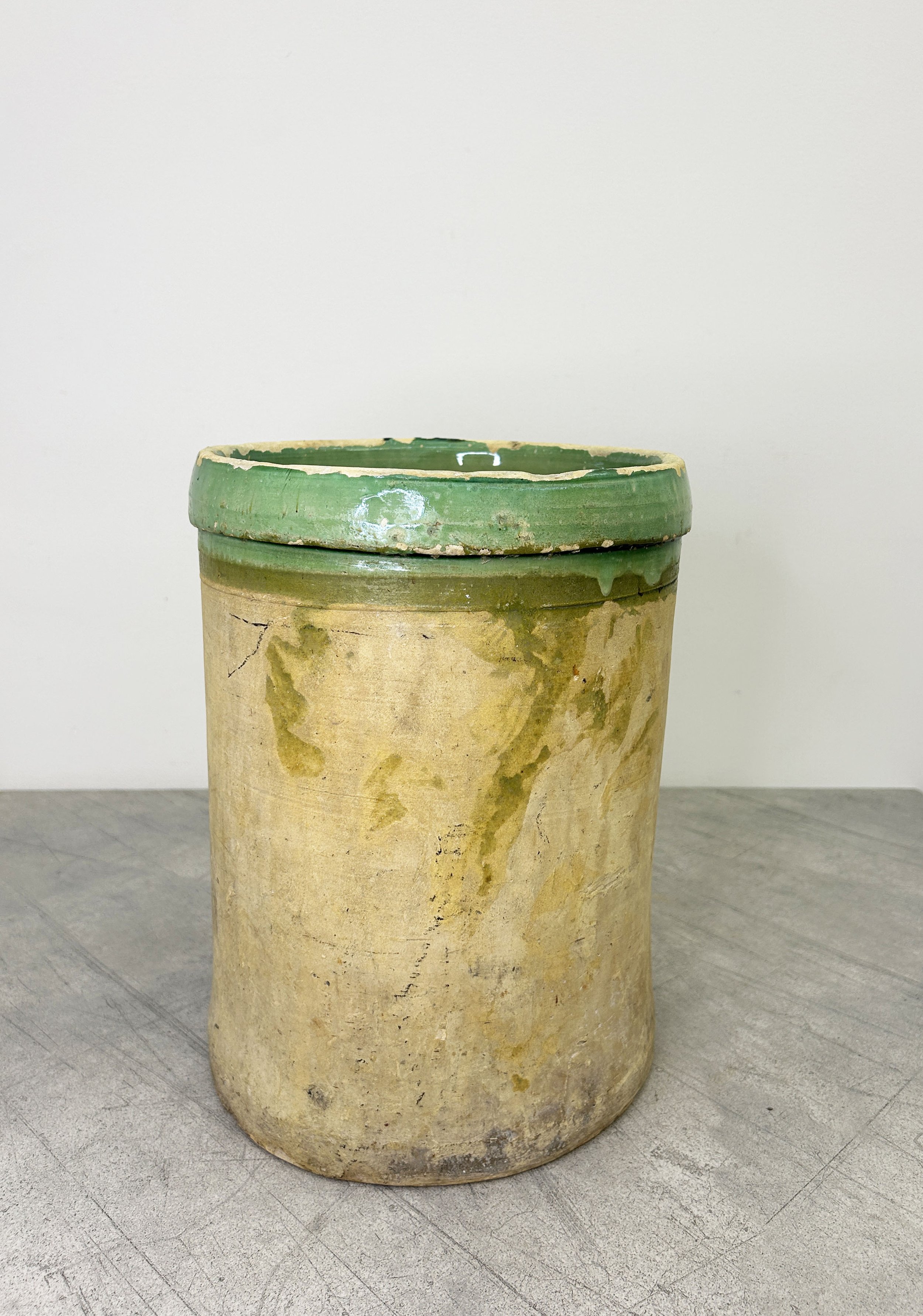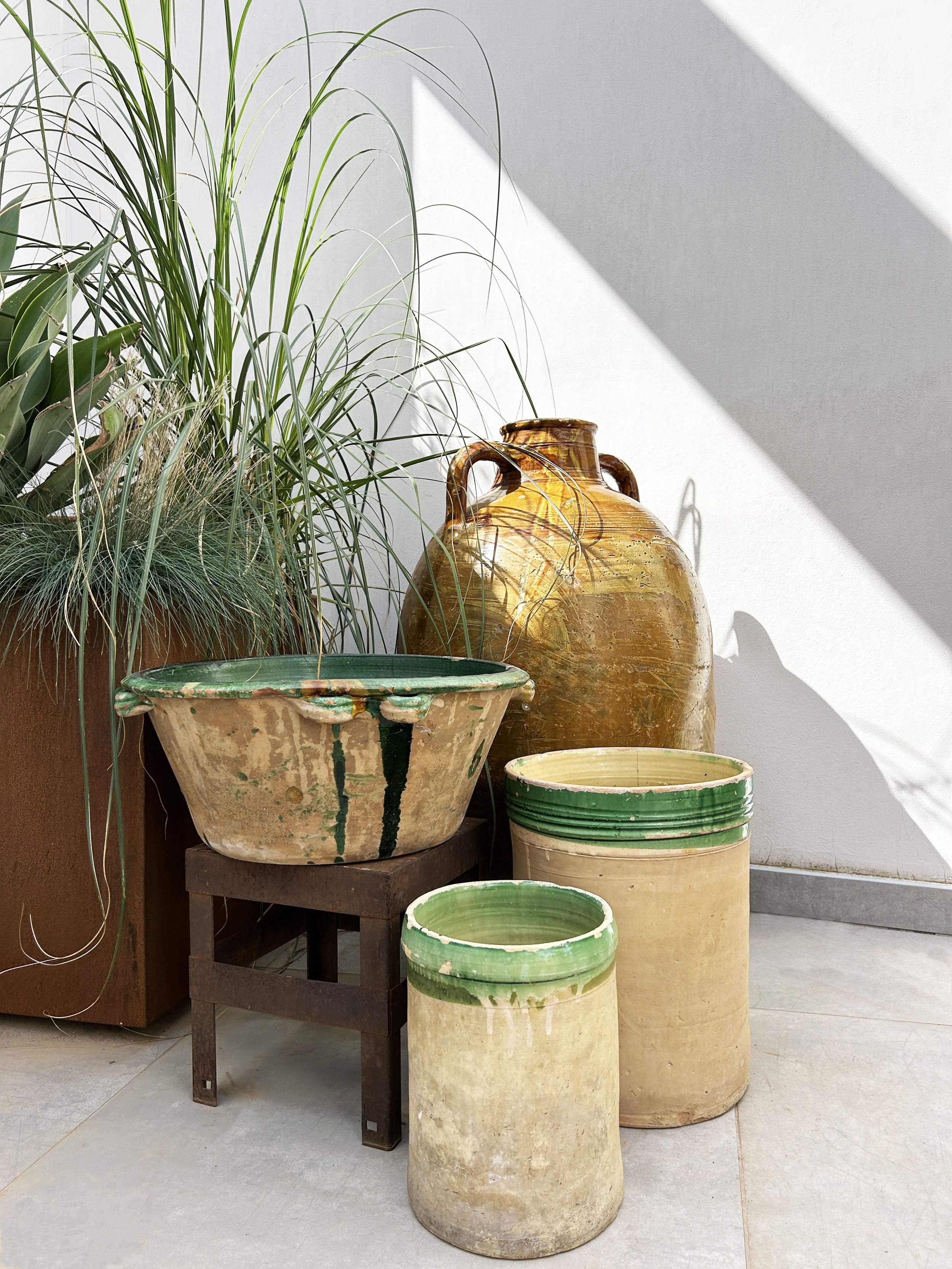Antique Green Rim Confit Pot
This antique hand thrown, cylindrical shaped vessel from Puglia is typical of confit pots in southern Italy called ‘capasa’. The confit pot is internally glazed as it was originally used to preserve food like ricotta, olives in brine or dried figs. This rustic pot has a green glaze around the rim that gives way to the raw clay base. The partial glaze was added for hygienic (and economical) purposes rather than decorative, so it could be wiped clean easily after use. It was also a less expensive technique used rather than glazing the entire vessel. There are indents on the external upper edge where a cloth would have been tied with a rope to cover the precious contents. What makes this farmhouse-style pot extra special is that there is a larger matching pot, as seen in the images, perfect to create an impactful display. The antique confit pot would make an ideal vase or plant pot as well, adding some country charm to any home, or outdoor space.
Found in Ostuni
the charming hilltop town of the valle d’Itria known as the la città bianca (or ‘white city’).
Dimensions: H29cm x W21.5cm x D21.5cm
These are handmade antique ceramics that are perfectly imperfect and some have been used for generations, so please expect some cracks, and chips, and discolouration. These individual characteristics are part of the charm and unique quality of each piece. Please note, colour may vary from screen to screen.
This antique hand thrown, cylindrical shaped vessel from Puglia is typical of confit pots in southern Italy called ‘capasa’. The confit pot is internally glazed as it was originally used to preserve food like ricotta, olives in brine or dried figs. This rustic pot has a green glaze around the rim that gives way to the raw clay base. The partial glaze was added for hygienic (and economical) purposes rather than decorative, so it could be wiped clean easily after use. It was also a less expensive technique used rather than glazing the entire vessel. There are indents on the external upper edge where a cloth would have been tied with a rope to cover the precious contents. What makes this farmhouse-style pot extra special is that there is a larger matching pot, as seen in the images, perfect to create an impactful display. The antique confit pot would make an ideal vase or plant pot as well, adding some country charm to any home, or outdoor space.
Found in Ostuni
the charming hilltop town of the valle d’Itria known as the la città bianca (or ‘white city’).
Dimensions: H29cm x W21.5cm x D21.5cm
These are handmade antique ceramics that are perfectly imperfect and some have been used for generations, so please expect some cracks, and chips, and discolouration. These individual characteristics are part of the charm and unique quality of each piece. Please note, colour may vary from screen to screen.
This antique hand thrown, cylindrical shaped vessel from Puglia is typical of confit pots in southern Italy called ‘capasa’. The confit pot is internally glazed as it was originally used to preserve food like ricotta, olives in brine or dried figs. This rustic pot has a green glaze around the rim that gives way to the raw clay base. The partial glaze was added for hygienic (and economical) purposes rather than decorative, so it could be wiped clean easily after use. It was also a less expensive technique used rather than glazing the entire vessel. There are indents on the external upper edge where a cloth would have been tied with a rope to cover the precious contents. What makes this farmhouse-style pot extra special is that there is a larger matching pot, as seen in the images, perfect to create an impactful display. The antique confit pot would make an ideal vase or plant pot as well, adding some country charm to any home, or outdoor space.
Found in Ostuni
the charming hilltop town of the valle d’Itria known as the la città bianca (or ‘white city’).
Dimensions: H29cm x W21.5cm x D21.5cm
These are handmade antique ceramics that are perfectly imperfect and some have been used for generations, so please expect some cracks, and chips, and discolouration. These individual characteristics are part of the charm and unique quality of each piece. Please note, colour may vary from screen to screen.

